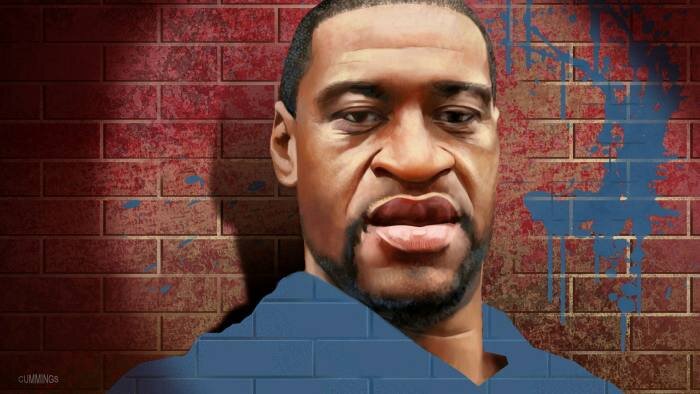By Elissa Barrett
May 25, 2021
As the anniversary of George Floyd’s murder has approached, our team has been reflecting on the great unresolved American conflict over accountability and redress for the dehumanization and enslavement of Black people in our country -- and the unrealized, transformative potential of reconciliation.
This great unresolved American conflict has risen to the surface in nearly every generation of our nation’s history, repeating itself over and over again.
The conflict is written into our Constitution. It caused the Civil War, opened itself to redress during the Reconstruction and retreated from that promise of repair with Reconstruction’s demise. The conflict was written into our social, legal and economic systems anew under Jim Crow until it faced the light of moral awakening during the Civil Rights Movement. In the nearly 60 years since, our path has been uneven -- progress for some mixed with economic disinvestment, mass incarceration and over-policing for millions.
This past year, a new generation was moved to action by the images that Darnella Frazier captured of Dereck Chauvin killing George Floyd last summer. Images that, like the beating of John Lewis and other Civil Rights activists on the Edmund Pettus Bridge in 1965, have brought us to yet another moment of reckoning.
Faced with the real question “Will it be any different this time?” we asked ourselves “What does mediation have to teach us at this moment?”
In mediation, we learn that transformation and healing happen when three things are present and fully realized: empathy, ownership and redress. When one or more are absent, any resolution will be temporary. The conflict – in some form or another – will continue to surface while the wound festers unhealed, causing ongoing harm and pain.
Empathy, ownership and redress combined are the cornerstones of transformative mediation and of restorative justice. Empathy is the practice of listening with open hearts and minds, allowing the lived reality of another human being to seep into our soul. Ownership is a voluntary expression of accountability through which we take responsibility for our actions and inactions. Redress is the process of taking affirmative steps to heal the harm we have caused, steps formed in partnership with those we have impacted.
In mediation, empathy, ownership and redress are conduits for growth. They present us with the opportunity to be transformed by the experience of others and to transform ourselves. They do not relieve us of the obligation to continue the work. Progress does not sustain itself. The deeper the wound, the more intense the pain, the longer the process of healing.
In our nation, the wound is deep and the pain is intense. It cannot be relieved by one verdict in one case. As Minnesota Attorney General Keith Ellison said, “This verdict is accountability. It is not justice.”
Justice is what we have the opportunity to bring into being together. The pursuit of justice requires us to be both impatient with the lack of resolution and undeterred with the process of change itself. Here’s to the work ahead.
Elissa Barrett is the Executive Director of the Western Justice Center (WJC). WJC envisions a world in which communities are healed, united and transformed through conflict resolution education and restorative practices rooted in equity, justice and opportunity. For more information, go to www.westernjustice.org.

